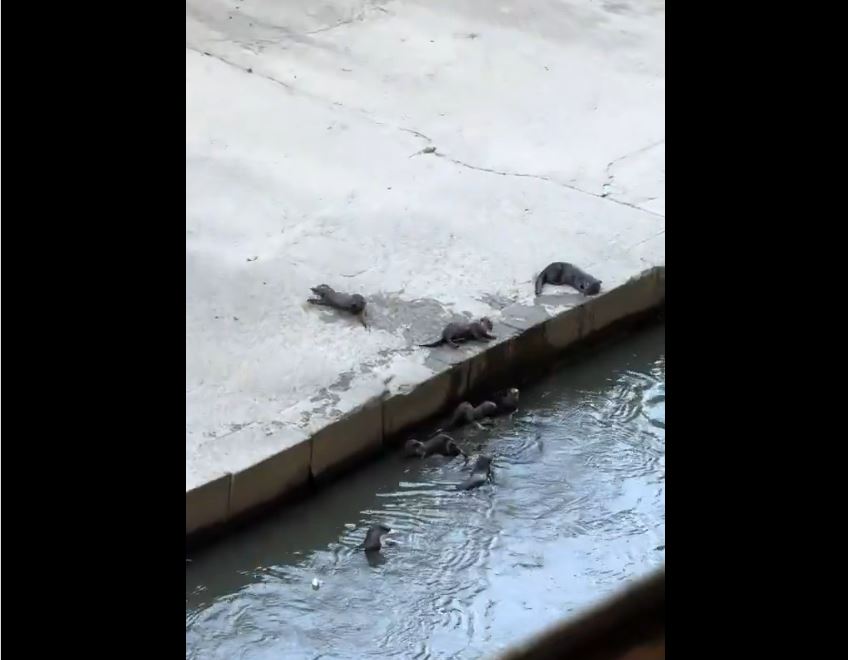IT CAN be quite a novelty to witness some wild animals in the concrete jungle. However, this could also be a sad indication that their homes are being destroyed, hence they are being forced to eke out a living beside us in an unnatural place.
Therefore, netizens were quite surprised to find some otters lurking in the Klang river recently, as seen in a video post by netizen @mhmmdn4z.
According to him, the appearance of these animals were a sign that the quality of the water was good.
He further pointed out a comment from another netizen, Mrlms, who appears to be an expert in the matter.
Mrlms said otters only lived in a place where there is clean water as the animal needed fishes and prawns to survive.
Interestingly, the video of the otters has gained quite a number of following, with over 3,400 shares and 168 comments.
Orang kata kalau binatang meremang dah keluar maksudnya air sungai kita dah bersih. Comey je tengok dia bersuka ria dkt sungai kelang tu
Yang sekor tu happy dpt makan ikan dlm sungai pic.twitter.com/qcBPCJkMqC
— Panggil Aku Naz (@mhmmdn4z) June 14, 2025
Quite a number of netizens highlighted the cuteness of the otters. @NikFarhana92 also wondered if they came all the way from Singapore.

However, netizen @drfitriyusof claimed that otters were not bioindicators of grade 1 water quality.
@mayakmrlzmn agreed with his observation, adding that dragonflies were a better indicator.
Another netizen said it was not possible that these animals were good indicators since they could be found in the village drains.
“I bet my whole fortune that this statement must be wrong. With the naked eyes it can be seen that the river is not clean,” said @qielystyles.
“Our river is not clean. They just need to adapt to whatever cause that is their only home,” @zhantafa continued.

Perhaps the winning comment came from @AcapTajuddin who wondered if it was permissible to eat an otter.

On another note, Malaysia is home to four out of the 13 otter species: the Eurasian otter (Lutra lutra), Asian small-clawed otter (Aonyx cinereus), smooth-coated otter (Lutrogale perspicillata), as well as the hairy-nosed otter (Lutra sumatrana).
Loss of habitat due to development, pollution and coastal erosion are threatening the otter population here.
As top mammalian predators, they play a significant role in stabilising the wetland ecosystem by keeping the population of fish and other invertebrates they prey upon in balance.
But their presence as a mark of water cleanliness is still questionable.—June 16, 2025
Main image: @mhmmdn4z (X)









